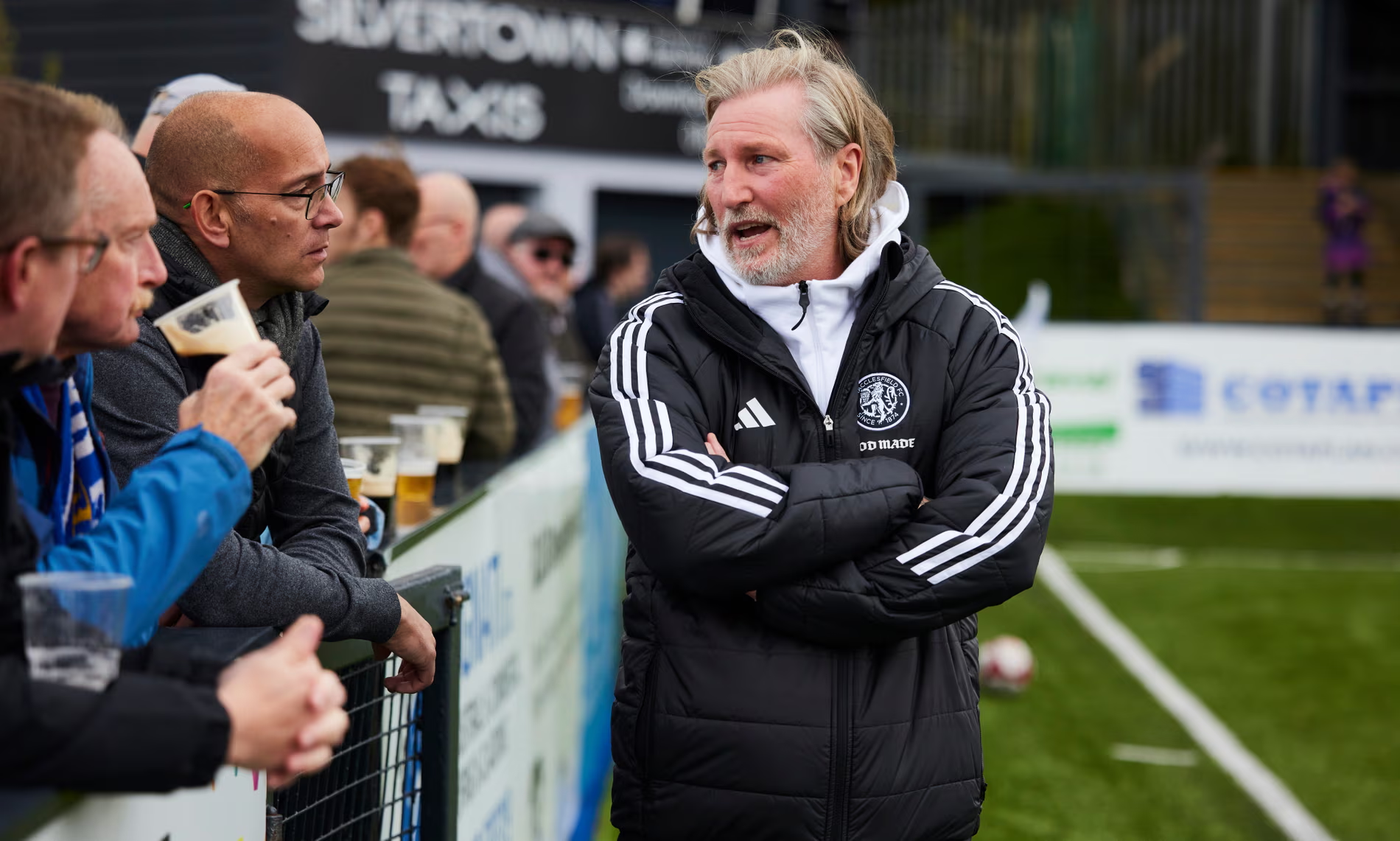Robbie Savage has been at Moss Lane for over four hours before his official matchday responsibilities begin. The manager of Macclesfield FC is constantly present at the venue and watches one of the 600-player academy teams in the morning.
Savage screws on his managerial head as 1pm draws near. Worst things happen first. Lewis Fensome, the center back, receives an invitation to a modest but elegant office located behind a dressing room. There is hardly enough room for a desk and two armchairs in this small area.
A monthly planner detailing the demanding schedule of the Northern Premier League, Savage’s results grid that he filled in as he went along (12 green wins, 2 blue draws so far), and a series of plaques detailing his journey from Manchester United to Macclesfield are all displayed on the walls. His wife Sarah had gifted them.
With access to matchday proceedings behind closed doors, The Guardian observes Fensome being told he won’t start. John McMahon, a former employee of Tranmere and Morecambe who served as Savage’s assistant, is also in attendance. McMahon advises, “Always do it with two people.” “So, there is no way to argue with what was said.”
Savage softly and reassuringly breaks the unpleasant news—the call is entirely tactical. “You’ve done an amazing job,” Savage remarks. Although you’re one of my top choices for a center defender, I’m starting a different ball player because I believe we’ll have the majority of the possession today. If I’m not correct, I’ll admit it later. Without a doubt, you’ll be playing on Friday.
Once Fensome departs, Savage explains how the defender forced his way into the first‑team reckoning via impressive under‑21 displays. Those in need of minutes are always offered the chance to get them on a Sunday. “It is their choice … but I always finish with: ‘But I know what the right option is,’” Savage says with a grin. “I learned that trick from Mark Hughes at Wales!”
By 1.35pm Savage is ticking a tad. A meeting to reveal the lineup should have started at 1.30pm sharp but two players are tardy. “I was never late once in my career,” he bristles. The internal battle Savage is fighting is obvious: his focus needs to be on the afternoon’s FA Cup clash with Witton Albion, but his clear and understandable annoyance threatens to override it.
“When you react on emotion, who are you doing it for?” Savage says. “John has taught me that you’re only doing it for yourself. The positive emotion is great because it creates energy and personality. It’s probably my strongest trait as a manager but it is also my weakest. It’s the one thing I’ve had to curb.”

